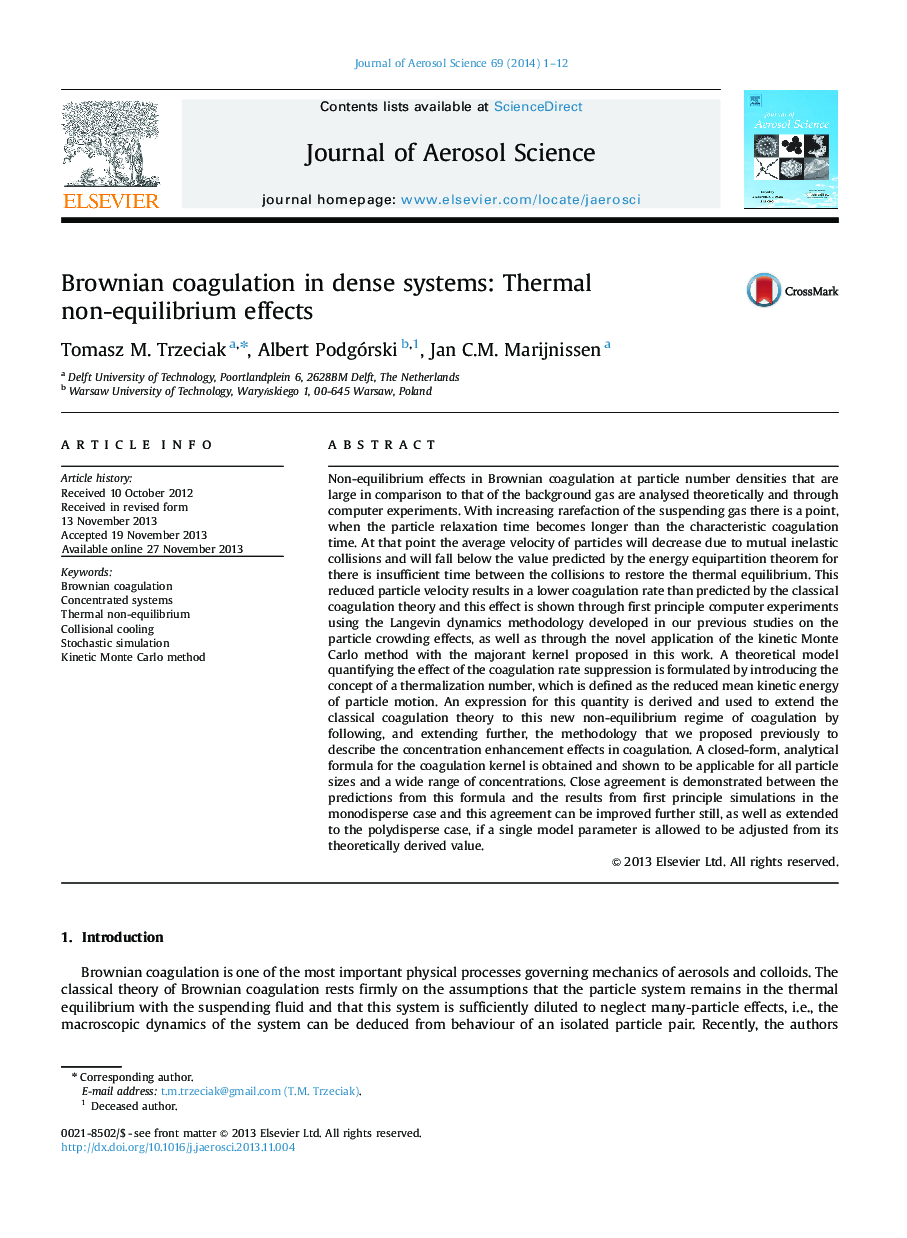| کد مقاله | کد نشریه | سال انتشار | مقاله انگلیسی | نسخه تمام متن |
|---|---|---|---|---|
| 6344501 | 1620754 | 2014 | 12 صفحه PDF | دانلود رایگان |
- Thermal non-equilibrium develops when coagulation rate outpaces particle relaxation.
- Collisional cooling leads to slow down of coagulation process.
- Theoretical model for the non-equilibrium coagulation regime is given.
Non-equilibrium effects in Brownian coagulation at particle number densities that are large in comparison to that of the background gas are analysed theoretically and through computer experiments. With increasing rarefaction of the suspending gas there is a point, when the particle relaxation time becomes longer than the characteristic coagulation time. At that point the average velocity of particles will decrease due to mutual inelastic collisions and will fall below the value predicted by the energy equipartition theorem for there is insufficient time between the collisions to restore the thermal equilibrium. This reduced particle velocity results in a lower coagulation rate than predicted by the classical coagulation theory and this effect is shown through first principle computer experiments using the Langevin dynamics methodology developed in our previous studies on the particle crowding effects, as well as through the novel application of the kinetic Monte Carlo method with the majorant kernel proposed in this work. A theoretical model quantifying the effect of the coagulation rate suppression is formulated by introducing the concept of a thermalization number, which is defined as the reduced mean kinetic energy of particle motion. An expression for this quantity is derived and used to extend the classical coagulation theory to this new non-equilibrium regime of coagulation by following, and extending further, the methodology that we proposed previously to describe the concentration enhancement effects in coagulation. A closed-form, analytical formula for the coagulation kernel is obtained and shown to be applicable for all particle sizes and a wide range of concentrations. Close agreement is demonstrated between the predictions from this formula and the results from first principle simulations in the monodisperse case and this agreement can be improved further still, as well as extended to the polydisperse case, if a single model parameter is allowed to be adjusted from its theoretically derived value.
Brownian coagulation kernel: particle crowding and thermal non-equilibrium effects at high concentrations.147
Journal: Journal of Aerosol Science - Volume 69, March 2014, Pages 1-12
